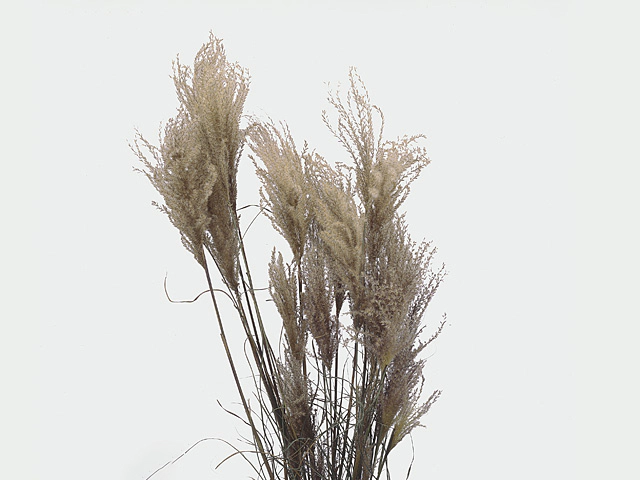Miscanthus sinensis other

| Winter hardness | Good (USDA-zone 5, 6) |
| Soil fertility | No poor soils |
| Leaf, general shape | Linear |
| Leaf size | 50 - 75 cm |
| Light conditions | Sunny; Semi-shades |
| Leaf, main color | Green grey |
| Moisture requirements | Wet; Moist |
Miscanthus sinensis, commonly known as Chinese silver grass, is a highly versatile and resilient plant that thrives in various conditions. Its winter hardiness makes it an excellent choice for gardeners in USDA zones 5 and 6. With its linear, green-grey leaves measuring between 50 to 75 cm, Miscanthus sinensis adds an elegant touch to any landscape.
One of the remarkable characteristics of Miscanthus sinensis is its adaptability to different light conditions. It flourishes in both sunny areas and semi-shaded spots, making it a fantastic option for gardens with varying levels of sunlight. Whether you have a sunny backyard or a partially shaded patio, Miscanthus sinensis can brighten up your space.
This ornamental grass also does not have strict soil requirements. While it prefers fertile soil, Miscanthus sinensis is quite forgiving and can tolerate various soil types. However, it tends to struggle in poor soils, so it is best to avoid planting it in extremely nutrient-deficient areas. Ensuring that the soil is adequately fertilized will help the plant flourish and reach its full potential.
Moisture is another crucial factor for Miscanthus sinensis's growth. It thrives in wet or moist conditions, making it an ideal choice for gardens with high humidity levels or areas that receive regular rainfall. However, it is important not to overwater the plant, as excessive moisture can lead to root rot. Striking a balance between wet and moist conditions will help Miscanthus sinensis thrive and maintain its health.
Aside from its impressive characteristics, Miscanthus sinensis offers a range of benefits to both homeowners and the environment. Its dense foliage provides privacy and acts as a natural windbreak, making it a great addition to gardens or outdoor living spaces. The tall, graceful plumes that emerge in late summer and last throughout fall add a touch of elegance and beauty.
In terms of environmental benefits, Miscanthus sinensis plays a significant role. Its extensive root system helps prevent soil erosion, making it a valuable asset for controlling sediment runoff in areas prone to erosion. Additionally, this plant actively absorbs carbon dioxide from the atmosphere, making it a potential solution to combat climate change.
In conclusion, Miscanthus sinensis is an exceptional plant with its adaptability to various light conditions, tolerance for wet or moist soils, and attractive linear green-grey leaves. Whether you are looking to add visual interest to your garden or contribute to environmental efforts, Miscanthus sinensis is an excellent choice. Its resilience and versatility make it a valuable addition to any landscape.
Market availability index by month:
| Jan. | Feb. | Mar. | Apr. | May | Jun. | Jul. | Aug. | Sep. | Oct. | Nov. | Dec. |
|---|---|---|---|---|---|---|---|---|---|---|---|
| 1 | 1 | 1 | 1 | 1 | 1 | 1 | 4 | 4 | 3 | 1 | 1 |